When to apply all my shredded leaves?
rouge21_gw (CDN Z5b/6a)
10 years ago
Related Stories

DECORATING GUIDES12 Decorating Scenarios When You Should Do Nothing at All
By embracing the positives of negative space, you can strategically highlight key furnishings, give the eye a rest and create focal points
Full Story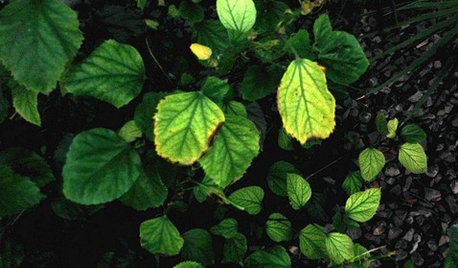
GARDENING GUIDESWhat's Wrong With My Plant? Leaves Often Hold the Clues
Learn how to identify common plant ailments by reading their leaves
Full Story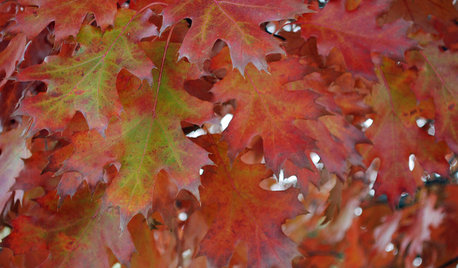
GARDENING GUIDES6 Healthy Ways to Handle Fallen Leaves
Once nature's beautiful bounty is spent, these ecofriendly strategies for leaves will put your yard in the clear
Full Story
CONTRACTOR TIPSBuilding Permits: When a Permit Is Required and When It's Not
In this article, the first in a series exploring permit processes and requirements, learn why and when you might need one
Full Story
REMODELING GUIDESInterior Brick: Paint it or Leave It?
Here's how to know if covering that brick is a sin or solution
Full Story
FALL GARDENING5 Ways to Put Fall Leaves to Work in Your Garden
Improve your soil and yard the organic way with a valuable garden booster that grows on trees
Full Story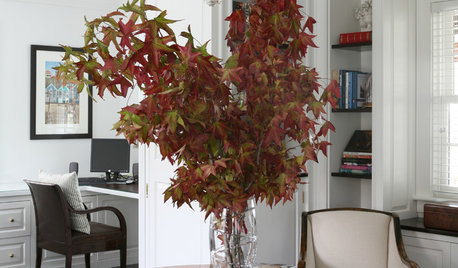
DECORATING GUIDES9 Easy Ways to Decorate With Autumn Leaves
Give your home a burst of color that can be used Halloween through Thanksgiving
Full Story
MOVINGThe All-in-One-Place Guide to Selling Your Home and Moving
Stay organized with this advice on what to do when you change homes
Full Story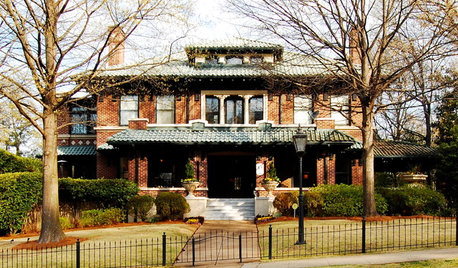
ARCHITECTUREStates of Style: Alabama’s Icons Leave Their Mark
In the first of a new series, discover the natural beauty, the architectural icons and some of our favorite homes deep in the heart of Dixie
Full Story
MOST POPULARWhen Does a House Become a Home?
Getting settled can take more than arranging all your stuff. Discover how to make a real connection with where you live
Full StorySponsored
Columbus Area's Luxury Design Build Firm | 17x Best of Houzz Winner!
More Discussions







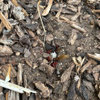

mxk3 z5b_MI
aachenelf z5 Mpls
Related Professionals
Danbury Landscape Architects & Landscape Designers · Maple Valley Landscape Architects & Landscape Designers · Oconomowoc Landscape Architects & Landscape Designers · Signal Hill Landscape Architects & Landscape Designers · Aurora Landscape Contractors · Milford Landscape Contractors · Beachwood Landscape Contractors · Bell Gardens Landscape Contractors · Burlington Landscape Contractors · Cockeysville Landscape Contractors · Fort Hunt Landscape Contractors · Oxnard Landscape Contractors · Parkland Landscape Contractors · Tinton Falls Landscape Contractors · Yuba City Landscape Contractorsninamarie
rouge21_gw (CDN Z5b/6a)Original Author
rouge21_gw (CDN Z5b/6a)Original Author
Karolina11
rouge21_gw (CDN Z5b/6a)Original Author
ken_adrian Adrian MI cold Z5
mad_gallica (z5 Eastern NY)
rouge21_gw (CDN Z5b/6a)Original Author
ken_adrian Adrian MI cold Z5
ninamarie
rouge21_gw (CDN Z5b/6a)Original Author
diggerdee zone 6 CT
katob Z6ish, NE Pa
diggerdee zone 6 CT
katob Z6ish, NE Pa
ken_adrian Adrian MI cold Z5
mxk3 z5b_MI
rouge21_gw (CDN Z5b/6a)Original Author
diggerdee zone 6 CT
mxk3 z5b_MI
rouge21_gw (CDN Z5b/6a)Original Author
aachenelf z5 Mpls
GreatPlains1
rouge21_gw (CDN Z5b/6a)Original Author
wayne_z5_ia
diggerdee zone 6 CT
GreatPlains1
woodyoak zone 5 southern Ont., Canada
terrene
Thyme2dig NH Zone 5
Karolina11
vtandrea
rusty_blackhaw
susanzone5 (NY)
susanzone5 (NY)
rouge21_gw (CDN Z5b/6a)Original Author
mnwsgal